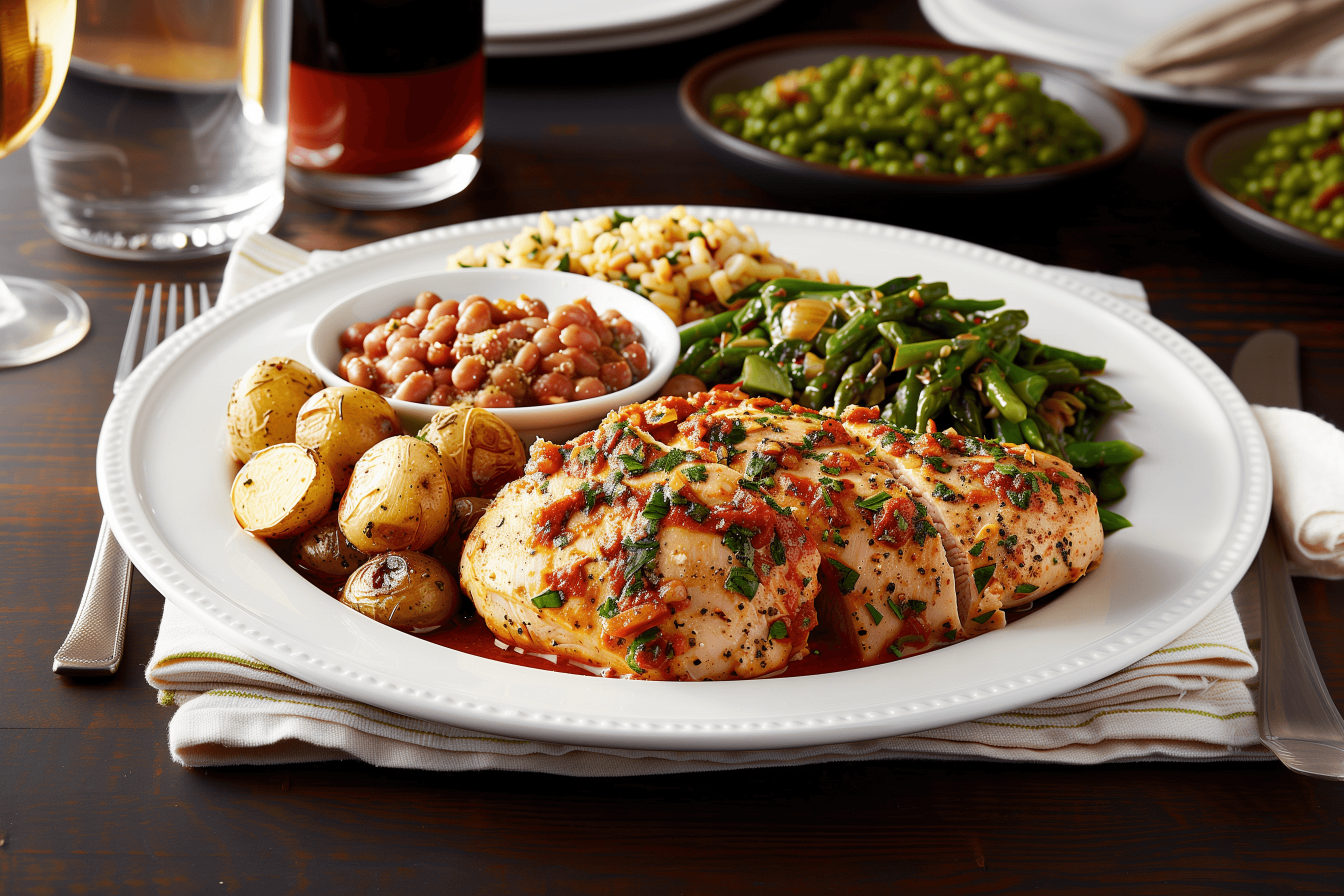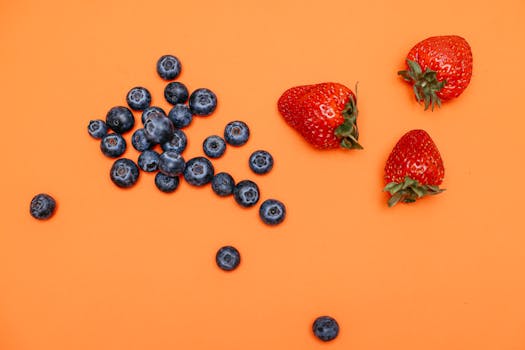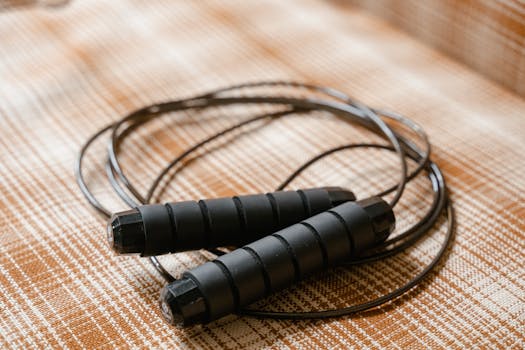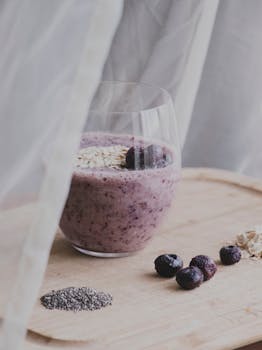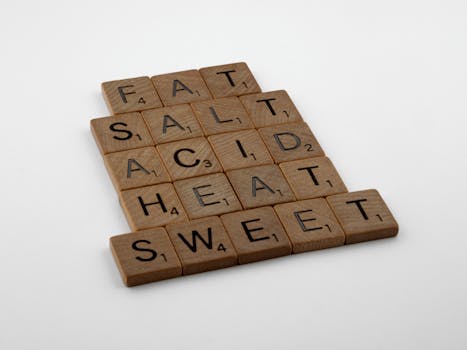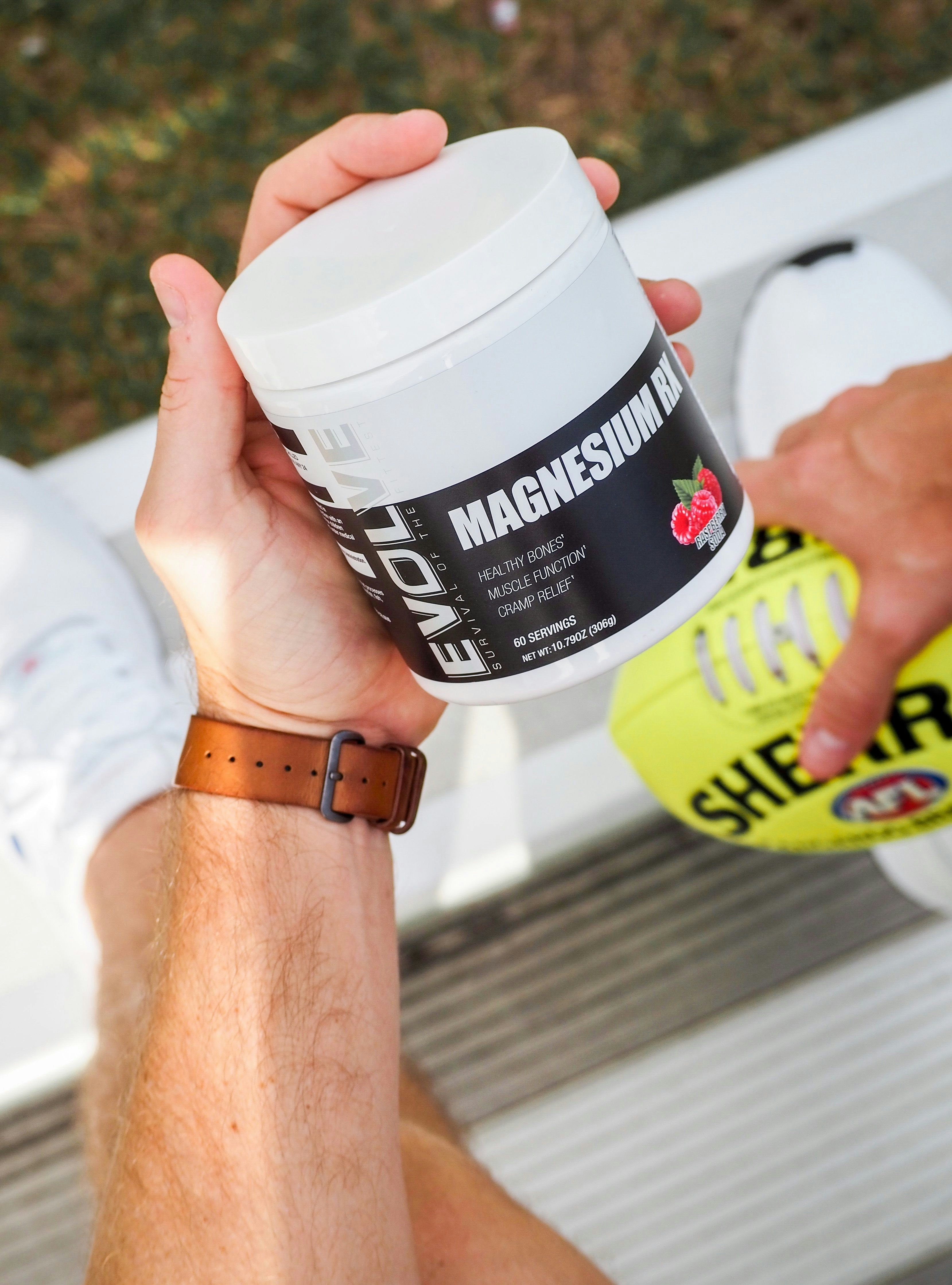8 oz Chicken Breast Calories: Comprehensive Nutrition Guide
Oct 3, 2024
Chicken breast is a popular choice for many health-conscious individuals and fitness enthusiasts. It's known for being a lean source of protein, making it a staple in many diets. But how many calories are actually in an 8 oz chicken breast? Let's dive into the nutritional details of this versatile food and explore how it can fit into a balanced diet and fitness routine.
How Many Calories are in an 8 oz Boneless Skinless Chicken Breast?
One of the most common questions about chicken breast is its calorie content. For an 8 oz (226.8 grams) boneless, skinless chicken breast, you can expect approximately:
Calories: 284
This calorie count can vary slightly depending on the specific cut and preparation method, but it's a good average to work with. It's important to note that this calorie count is for raw chicken breast. Cooking methods can affect the final calorie content, which we'll discuss later in this article.
Nutritional Breakdown of an 8 oz Chicken Breast
Beyond just calories, chicken breast offers a wealth of nutrients. Here's a more detailed nutritional profile for an 8 oz boneless, skinless chicken breast:
Protein: 53 grams
Fat: 6.2 grams
Carbohydrates: 0 grams
Sodium: 126 mg
Potassium: 490 mg
As you can see, chicken breast is primarily composed of protein, with a small amount of fat and virtually no carbohydrates. This makes it an excellent choice for those following low-carb or high-protein diets.
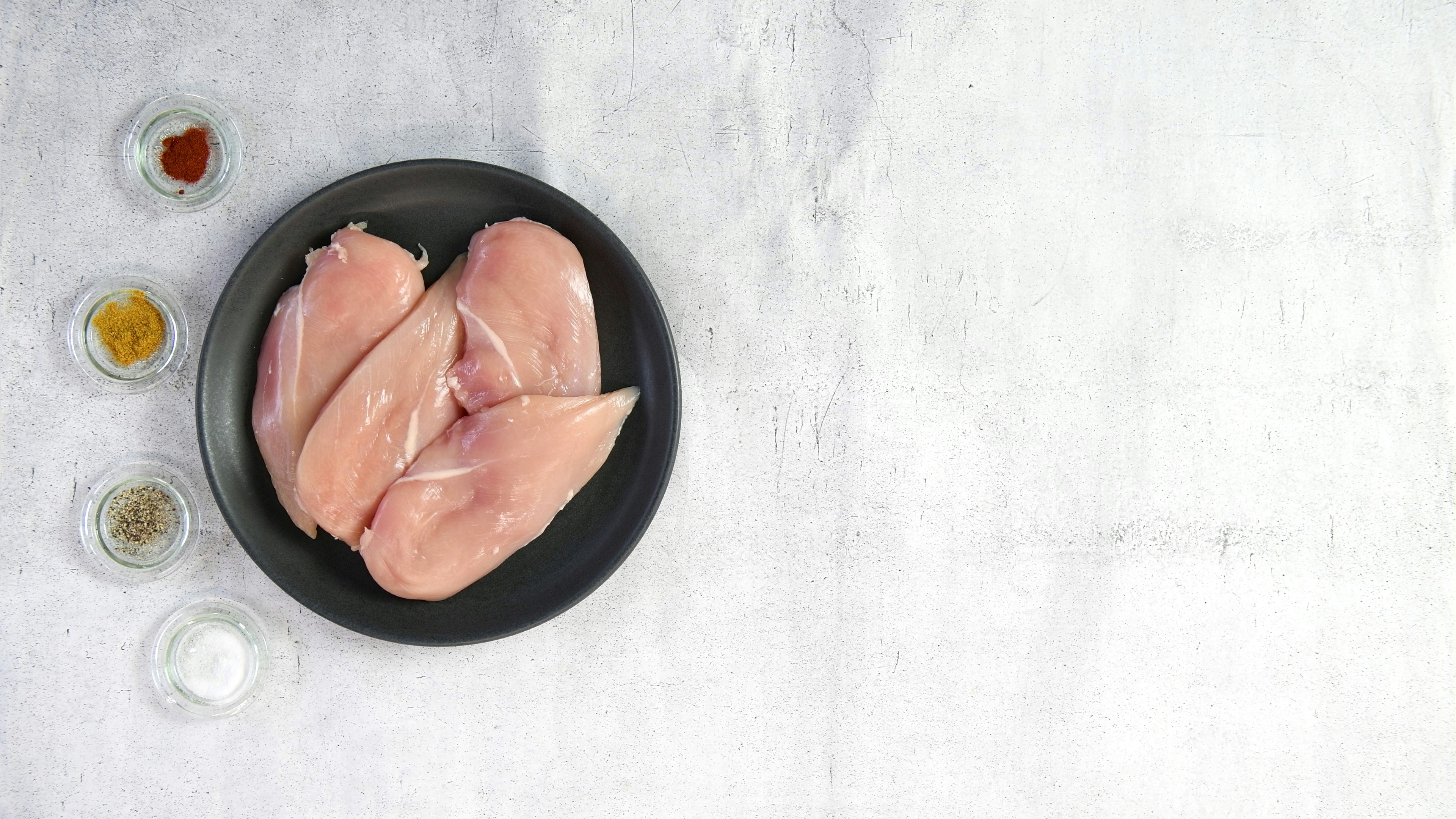
How Many Calories in 8 Ounces of White Meat Chicken Breast?
White meat chicken breast, which is the same as boneless, skinless chicken breast, contains the same number of calories - about 284 for an 8 oz portion. The term "white meat" refers to the lighter-colored meat from the breast and wing portions of the chicken, as opposed to the darker meat found in the legs and thighs.
How Much is 8 oz of Chicken Breast in Grams?
For those more familiar with the metric system:
8 oz = 226.8 grams
This conversion is useful when comparing nutritional information or following recipes that use different units of measurement.
How Many Calories are in 8 oz of Fried Chicken Breast?
When it comes to fried chicken breast, the calorie count increases significantly due to the added oil used in the frying process. An 8 oz portion of fried chicken breast can contain approximately:
Calories: 490-600
The exact number can vary based on the batter used, frying oil, and cooking time. It's worth noting that frying not only increases the calorie content but also the fat content of the chicken.
How Many Calories are in 8 oz of Roasted Chicken Breast?
Roasting is a healthier cooking method compared to frying. An 8 oz portion of roasted chicken breast typically contains:
Calories: 310-350
The slight increase in calories compared to raw chicken breast is due to any oil used in the roasting process and some water loss during cooking, which concentrates the nutrients slightly.
Is Chicken Breast High in Calories?
Compared to many other protein sources, chicken breast is relatively low in calories. For example:
8 oz chicken breast: 284 calories
8 oz salmon: 468 calories
8 oz lean beef: 468 calories
This makes chicken breast an excellent choice for those looking to increase their protein intake while managing their calorie consumption. It's particularly popular among those engaged in strength training or trying to build muscle mass.
How Much is 200 Calories in a Chicken Breast?
If you're aiming for a 200-calorie portion of chicken breast, you'd need approximately:
5.6 oz (159 grams) of raw, boneless, skinless chicken breast
This can be a useful measure for those carefully tracking their calorie intake as part of a weight management plan.
What Does 100g of Chicken Look Like?
100 grams of chicken breast is approximately 3.5 ounces. Visually, this is about the size of a deck of cards or the palm of an average adult's hand. This visual guide can be helpful when estimating portion sizes without a scale.
How Much is 300 Calories in Chicken Breast?
For a 300-calorie portion of chicken breast, you'd need approximately:
8.45 oz (240 grams) of raw, boneless, skinless chicken breast
This is slightly more than the standard 8 oz portion we've been discussing.
Protein Content in 8 oz Chicken Breast
Chicken breast is renowned for its high protein content. An 8 oz (226.8g) chicken breast contains approximately:
Protein: 53 grams
This high protein content makes chicken breast an excellent choice for those looking to increase their protein intake, whether for muscle building, recovery after exercise, or general health.
Incorporating 8 oz Chicken Breast into Your Diet
Now that we understand the nutritional content of an 8 oz chicken breast, let's explore how to incorporate it into a balanced diet:
Meal Prep: Cook several chicken breasts at once for easy, protein-packed meals throughout the week.
Salad Topper: Slice cooked chicken breast to add protein to your salads.
Stir-Fry: Cube chicken breast and stir-fry with a variety of vegetables for a balanced meal.
Sandwich Filling: Use sliced chicken breast as a lean protein source in sandwiches.
Pasta Addition: Add chunks of chicken breast to pasta dishes for added protein.
Remember, while chicken breast is nutritious, it's important to include a variety of protein sources in your diet for a range of nutrients.
Cooking Methods and Their Impact on Calories
The way you cook your chicken breast can significantly impact its calorie content:
Grilling: Minimal added calories, great for maintaining the chicken's lean profile.
Baking/Roasting: Slight increase in calories if oil is used, but generally a healthy cooking method.
Pan-frying: Can add calories depending on the amount of oil used.
Deep-frying: Significantly increases calorie and fat content.
For the most health-conscious approach, opt for methods like grilling, baking, or roasting with minimal added fats.
Chicken Breast in a Fitness-Focused Diet
Chicken breast is a favorite among fitness enthusiasts and athletes for several reasons:
High Protein, Low Fat: Ideal for muscle building and recovery.
Versatility: Can be prepared in numerous ways to prevent dietary boredom.
Satiety: The high protein content can help you feel full and satisfied.
If you're following a fitness program, like those offered by Tidalflow's AI-powered personal trainer, incorporating chicken breast into your meal plan can support your goals, whether they're related to weight loss, muscle gain, or overall health improvement.
Comparing Chicken Breast to Other Protein Sources
While chicken breast is an excellent protein source, it's good to understand how it compares to other options:
Beef: Generally higher in calories and fat, but also higher in iron.
Fish: Often lower in calories, high in protein, and rich in omega-3 fatty acids.
Pork: Similar in protein content, but often higher in fat.
Tofu: Lower in calories and protein, but a good plant-based alternative.
Variety in your protein sources ensures you're getting a range of nutrients in your diet.
Tips for Preparing 8 oz Chicken Breast
To make the most of your chicken breast while keeping it healthy:
Marinate: Use low-calorie marinades to add flavor without significantly increasing calories.
Seasoning: Experiment with herbs and spices for variety without added calories.
Portion Control: Use a food scale to ensure accurate 8 oz portions.
Cooking Method: Opt for grilling, baking, or air frying to minimize added fats.
Potential Health Benefits of Chicken Breast
Beyond its macronutrient profile, chicken breast offers several potential health benefits:
Weight Management: High protein content can aid in feeling full and satisfied.
Muscle Growth: Essential amino acids support muscle protein synthesis.
Heart Health: Low in saturated fat compared to many other animal protein sources.
Blood Sugar Control: Protein can help stabilize blood sugar levels.
Considerations When Including Chicken Breast in Your Diet
While chicken breast is generally a healthy choice, there are a few things to keep in mind:
Sodium Content: Be mindful of added sodium in pre-packaged or marinaded chicken.
Quality Matters: Opt for organic or free-range chicken when possible for potentially higher nutrient content.
Variety: While chicken breast is nutritious, it shouldn't be your only protein source.
Food Safety: Always ensure chicken is cooked to a safe internal temperature (165°F or 74°C).
Chicken Breast and Special Diets
Chicken breast can fit into many special diets:
Keto: High in protein, low in carbs, making it ideal for ketogenic diets.
Paleo: As an unprocessed meat, it's perfectly suited for paleo diets.
Low-Fat: Its low fat content makes it suitable for low-fat dietary approaches.
Gluten-Free: Naturally gluten-free, great for those with celiac disease or gluten sensitivity.
Conclusion: 8 oz Chicken Breast as Part of a Balanced Diet
An 8 oz chicken breast, with its approximately 284 calories and 53 grams of protein, can be an excellent addition to a balanced, healthy diet. Its lean profile makes it suitable for various dietary needs and fitness goals, from weight management to muscle building.
Remember, while chicken breast is nutritious, the key to a healthy diet is variety and balance. Combine your chicken breast with a range of vegetables, whole grains, and healthy fats for a well-rounded meal. And don't forget, how you prepare your chicken can significantly impact its final calorie content, so opt for healthier cooking methods when possible.
Whether you're meal prepping for the week ahead, fueling up after a workout, or simply enjoying a nutritious dinner, chicken breast can be a valuable part of your dietary arsenal. By understanding its nutritional profile and how to incorporate it effectively into your meals, you can make the most of this versatile, lean protein source.
As with any dietary changes, it's always a good idea to consult with a healthcare professional or registered dietitian, especially if you have specific health concerns or fitness goals. They can help you determine the right portion sizes and frequency of chicken breast consumption that aligns with your individual needs and objectives.
Paired with regular exercise and an overall balanced lifestyle, incorporating 8 oz chicken breast into your diet can support your journey towards improved health and fitness. Whether you're following a structured fitness program or simply aiming to eat a bit healthier, chicken breast can be a reliable, nutritious choice to help you reach your goals.
You should not have to do it all on your own



